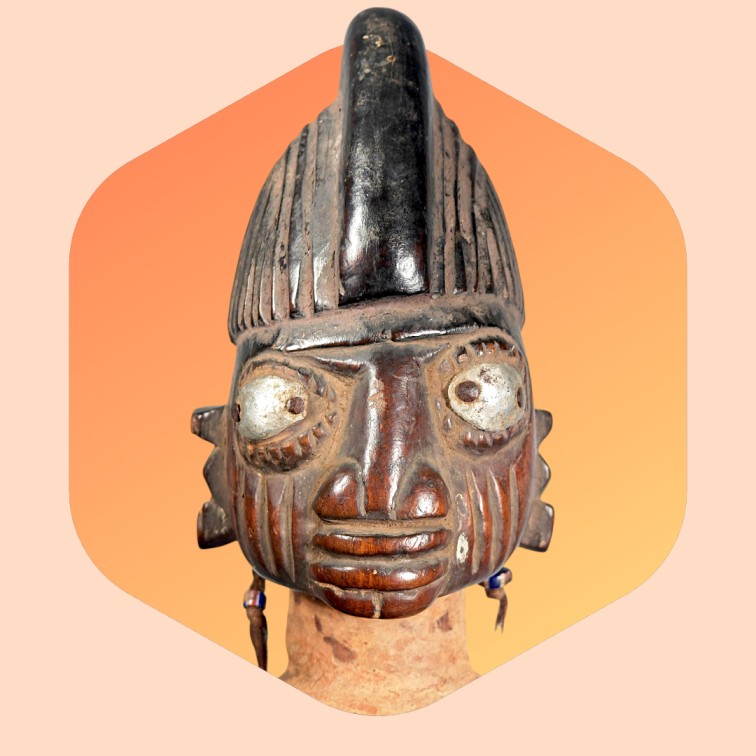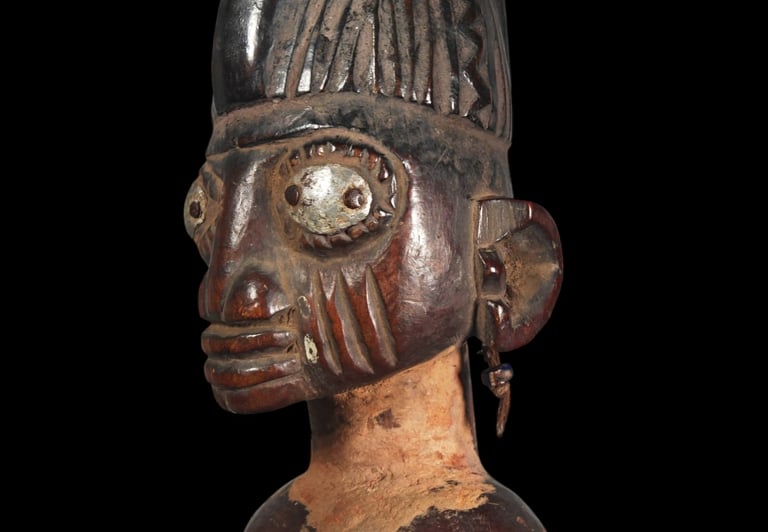Under the Watchful Eyes of Ògún


How metal empowers the ìbejì twins with enduring strength and spiritual vision
In Yoruba belief, Ògún—the god of iron, the forge, and sacred crossroads—imbues metal with life, power, and protection.
The ìbejì statues, created in honor of living or deceased twins, are far more than carved figures: they serve as vessels for the twin’s spirit. Their metal-inlaid eyes do more than shine; they channel the divine insight of Ògún, allowing the twins to perceive both the visible and invisible worlds. Beyond symbolism, these metal inserts act as a spiritual seal, preventing the departed twin’s soul from leaving the statue and ensuring it retains its full potency. In this way, the ìbejì remains a living presence, a source of protection, and a bridge connecting the family to the unseen realm.
In Yoruba cosmology, every material holds energy, known as àṣẹ, which carries power and intention. Metal, shaped by Ògún’s fire, is especially potent, making it ideal for the eyes of the ìbejì. By embedding metal in the eye sockets, the sculptor or diviner safeguards the twin’s soul, keeping it anchored within the statue. This preserves the spiritual effectiveness of the figure, enabling it to respond to prayers and receive offerings while maintaining its protective role within the household.
The metal does more than restrain; it illuminates. Reflections from brass, copper, or iron lend the eyes a lifelike quality, giving the impression of awareness and vigilance. In Yoruba thought, these eyes perceive both worlds—the living and the ancestral—and through Ògún’s consecrated metal, this gaze becomes enduring and incorruptible.
As master of boundaries, Ògún governs the transitions between life and death, matter and spirit. The ìbejì, under his guardianship, functions as a bridge between worlds, where earthly existence and spiritual presence intersect. The metal ensures that the twin’s essence remains firmly embodied in the carved figure, offering the family reassurance that the departed twin continues to watch and protect.
Ultimately, under Ògún’s gaze, metal serves as more than protection—it preserves memory and vitality. The ìbejì, with their radiant metal eyes, remind us that death is a transformation rather than an ending. The twin’s spirit endures, participating in the life of the household, receiving offerings, and maintaining a presence in the visible world.
Each gleam of metal reflects the soul’s vigilance, embodying the dual nature of twins: simultaneously shadow and light, visible and invisible. By honoring the ìbejì, the Yoruba celebrate the continuity of life and spirit, a dialogue that transcends worlds. Under Ògún’s watch, metal becomes both a seal and a beacon, keeping alive the enduring presence of the twins.


